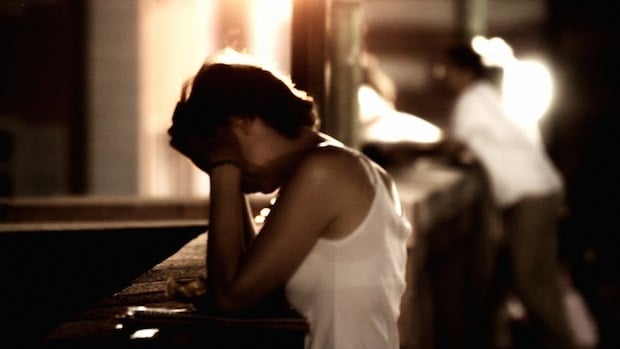⏱️ Estimated Reading Time: 5 min read
One in four women. Those are the startling national statics for cases of intimate partner violence. For many of us within the church, those numbers reveal just how desperately our world needs Jesus, but we fail to realize that domestic violence is a serious problem within our walls too. In fact, domestic abuse is not just a problem within the church; sometimes we can make it easier for abusers to hide and justify themselves. There are two primary ways that the church can unintentionally provide a safe haven for abusers.
The church is often the most ill-equipped and unprepared to intervene in cases of abuse. We can cultivate a safe haven for abusers, then, simply through ignorance. Victims of abuse may often go to their pastors for help, but in reality, pastors are often unaware of what abuse looks like, how to identify it, and how to help. If abuse does not reveal itself in the form of classic aggression, violent behavior, and bruises on the victim, then the average pastor won’t see it. In fact, their very narrow definition of abuse may lead them to do more damaging things, like offering marriage counseling to the couple.
Marriage counseling only works if both parties can be honest and vulnerable. In scenarios of abuse one spouse holds all the power and control; so, being vulnerable in front of such a person is like giving them ammunition to use against you later. Further, abusers are very adept at avoiding exposure; they know how to non-verbally communicate with their victims that speaking honestly will result in serious consequences later. Marriage counseling will not work in this context; either the victim will refuse to speak honestly, or the abuser will take what is said and make the victim pay for it later. Furthermore, pastors can sometimes actually confirm the abuser’s behavior. Teaching a wife that she must submit, pointing out sin in both spouses, suggesting that a wife can control the situation by how she responds will make the abuser bolder and reassured. Marriage counseling serves to put the victim of abuse further into harm’s way. The moment abuse is acknowledged in a counseling case; marriage counseling should cease. Where violent behavior is acknowledged, the victim should be encouraged to call the police. Marriage counseling will be dangerous at these points.
Churches can also create a safe haven for abusers by overemphasizing male authority instead of male sacrifice. I can appreciate the need to teach all that the Bible says. Pastors and teachers want to be confident that they are teaching “the whole counsel of God” (Acts 20:27), and that includes even the controversial parts. But for those conservative churches who affirm male headship in the home, the emphasis can often be the opposite of Scripture’s emphasis. Often churches, pastors, and Christian men are interested in the question: who is in charge. We raise scenarios like if we can’t agree then who has the final say? But the Bible’s emphasis is not on who’s calling the shots, but rather on who is dying to self. So, Ephesians 5, the famous passage on the subject, is far more about submission and sacrifice than authority. In Ephesians 5:21 Paul sets up his teaching on the home by insisting that we ought to “submit to one another out of reverence for Christ.” He then details what submission looks like in the home for husbands, wives, and children. If we emphasize authority over sacrifice, we will not only be out of step with the Bible’s emphasis, but we will unwittingly encourage men that the dominant issue is their authority, not their self-denial.
Jesus teaches men that authority is about sacrifice not “lording it over others” (Matt.20:25-26). Sacrifice is the fundamental issue at play in the home. Whatever your convictions about male headship, the church needs to emphasize sacrifice and service not rule. To overemphasize the former will be to confirm men in their abuse and dominance. Pastors must be sensitive, then, to whom they are preaching.
There are some things we can do to counteract these oversights, but the most important are to get educated. Peaceworks has a great educational program to help pastors and lay leaders identify and respond appropriately to abuse in the church. We also need to listen honestly and humbly to the claims of anyone who says they are experiencing abuse in the home. Nothing is more devastating to a victim of abuse than finally building up the courage to ask for help only to have your pleas ignored or denied. Pastors should take every accusation of abuse seriously.
I don’t believe that the church, at least, generally speaking, intends to support abusive behavior. Most pastors would be appalled at its existence among their people, and most churches would want to take immediate action to rescue victims in such contexts. They are often unprepared to be truly helpful and may unwittingly support abusers in how they teach and counsel. The church needs to think more carefully and comprehensively about domestic violence. It exists among us, even if we don’t see it.
This article first appeared at David’s website and is posted here with permission.



